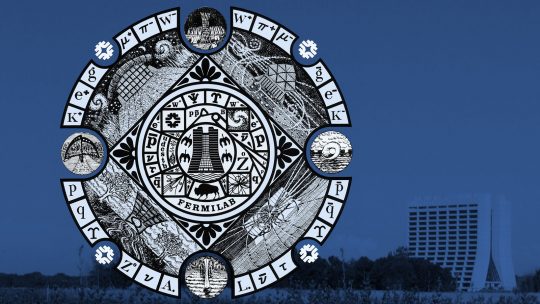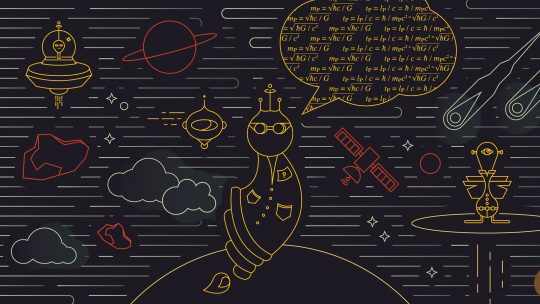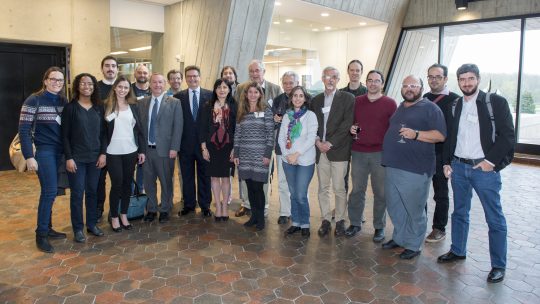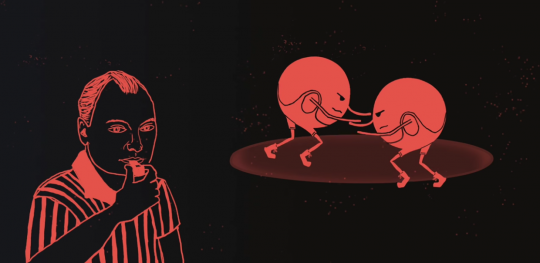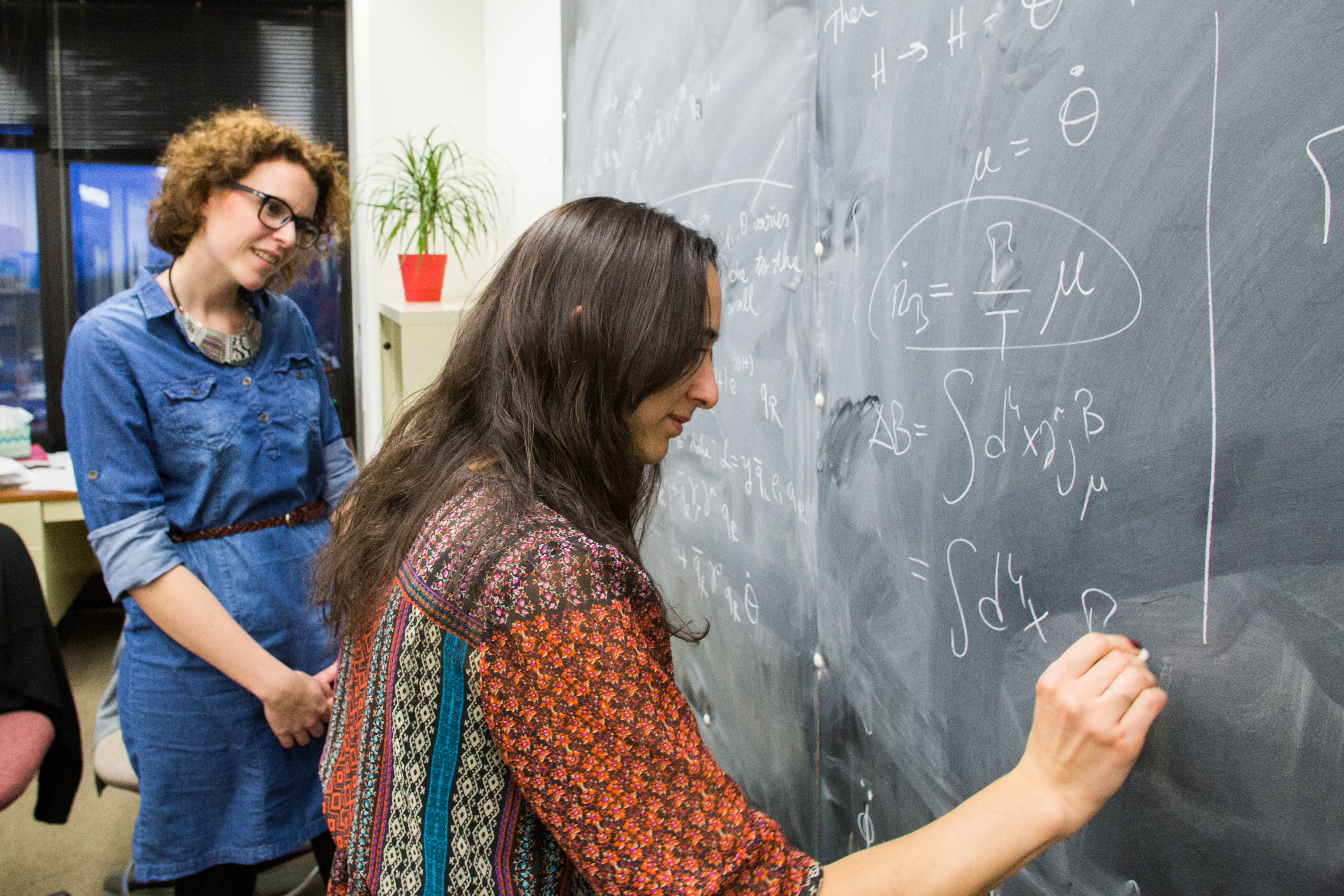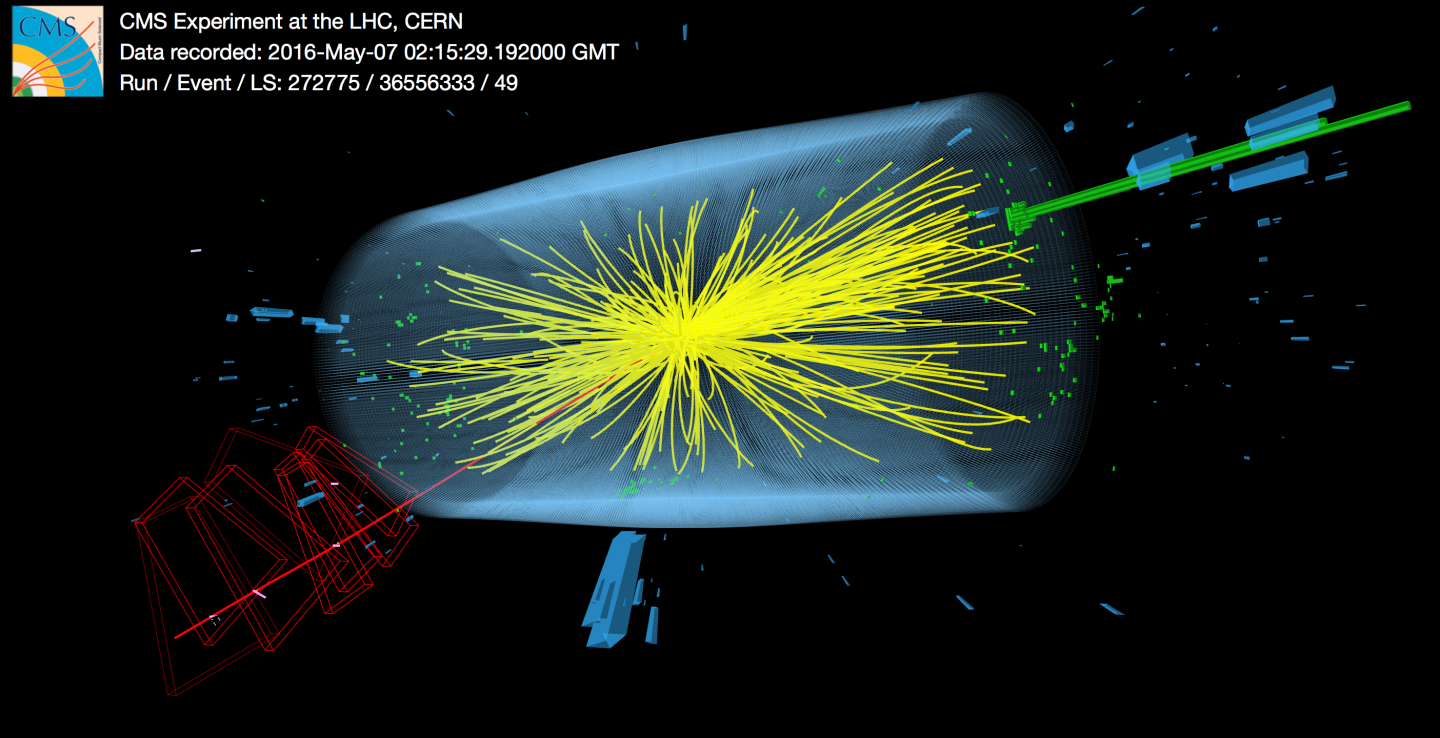2571 - 2580 of 3064 results
The Planck scale
The Planck scale sets the universe’s minimum limit, beyond which the laws of physics break.
Watch: an experiment to create and ‘taste’ neutrinos
From Cosmos Magazine, May 19, 2016: The most elusive particles in the universe – neutrinos – might not stay hidden for much longer. Testing for the Deep Underground Neutrino Experiment, or DUNE, began earlier this year.
Brazil in Batavia: How a timely invitation sparked 30 years of partnership
The Brazilian user community at Fermilab consists of nearly 80 researchers from 15 institutions working across 13 different projects and experiments.
Why do objects feel solid?
A reader asks, “If atoms are mostly empty space, then why does anything feel solid?” James Beacham, a researcher with the ATLAS Experiment Group at Ohio State University, explains in this two-minute video.
Fermilab scientists cautiously excited about possible new particle
From Voice of America, May 11, 2016: As the Large Hadron Collider returns to full operation, scientists at Fermilab, America’s premier particle physics lab, are excited about a tantalizing discovery made at CERN.
What do theorists do?
Theorists map and navigate the sea of possible particle discoveries.
Mommy, Daddy, where does mass come from?
The Higgs field gives mass to elementary particles, but most of our mass comes from somewhere else.
Exhibit offers mash-up of statistics and sculpture
From WDCB 90.9 FM, May 10, 2016: Artist Stephen Cartwright loves the pattern of data and uses it to create art. His visualizations are the basis of the artworks on display at the Fermilab Art Gallery.
Large Hadron Collider prepares to deliver six times the data
After months of winter hibernation, the Large Hadron Collider is once again smashing protons and taking data. The LHC will run around the clock for the next six months and produce six times more collisions than in 2015.

